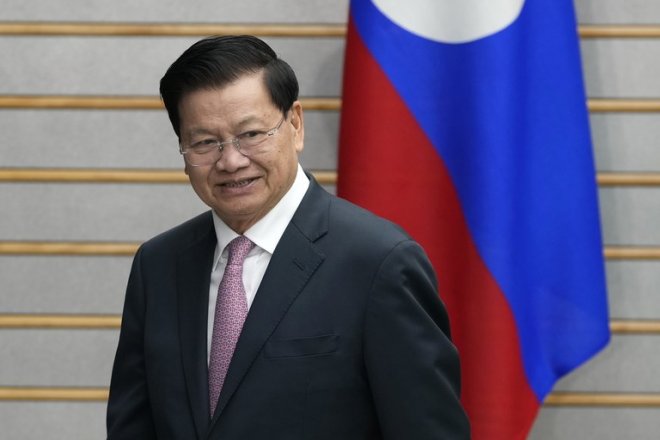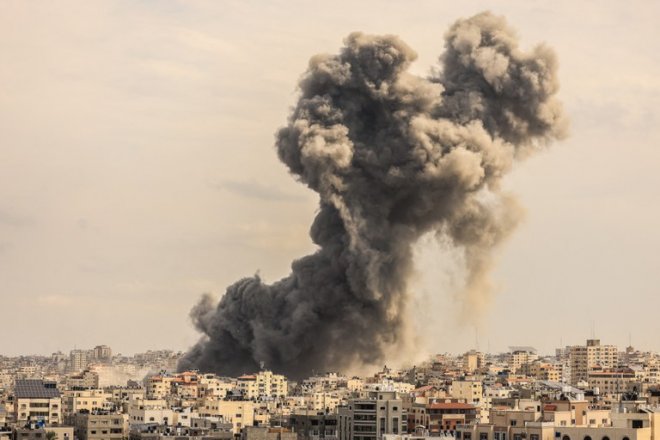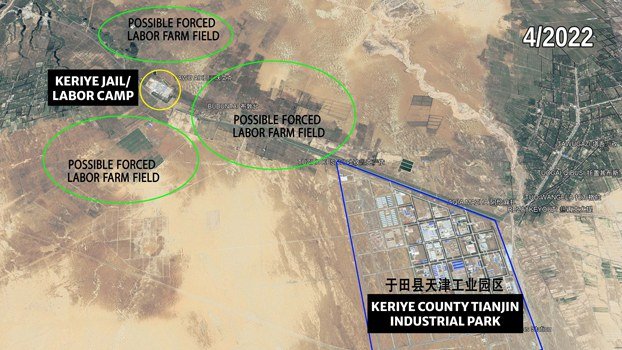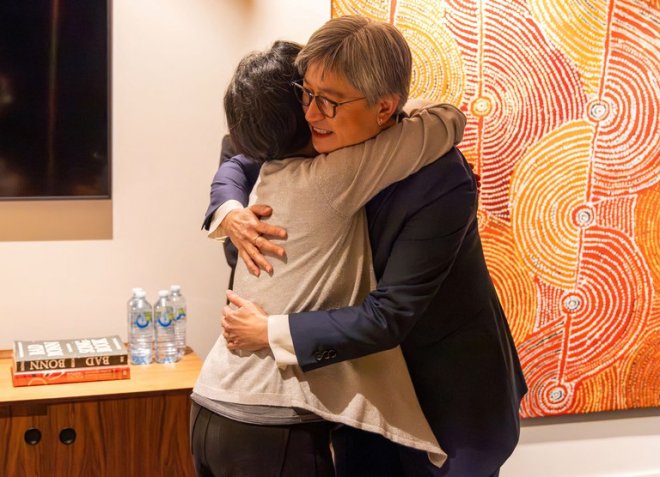Pro-junta ‘Blood Comrades’ resurface in Myanmar with April killings
The “Blood Comrades” are back.The shadowy pro-junta militia sows terror by targeting opponents of Myanmar’s military for death and leaves a chilling calling card by their victims with their logo – an image of a Burmese warrior holding two swords.
Since emerging about a year ago, the group is believed responsible for the deaths of nearly 60 people, many of them members of the deposed National League for Democracy, or NLD, Aung San Suu Kyi’s party that ruled the country before the February 2021 coup.
“They are neither the police nor the military – they are just the junta’s stooges,” said a Mandalay resident who spoke to Radio Free Asia on condition of anonymity for fear of his life. They emerged because “rule of law ceased to exist immediately after the military coup.”
After a string of killings last year, the Blood Comrades went quiet for several months.
But in April, they resurfaced, killing three people, including two NLD members.
On April 2, a 40-year-old man was found dead near the U Pwar bridge in the Chan Mya Thar Si township outside Mandalay with a sign bearing the logo of the Thway Thauk, or “Blood Comrades.”
The following day, the bodies of two NLD members were found at an intersection of the East Amara Htarni ward of Mandalay’s Aung Myay Thar Zan township. They too bore cards with the Blood Comrades’ logo.
Attacks by the Blood Comrades illustrate how the conflict that has engulfed Myanmar isn’t a clear-cut war between the junta’s troops and members of the People’s Defense Forces, ordinary citizens who have taken up arms against the military, or the ethnic armies such as the Kachin Independence Army and the Karen National Liberation Army, who have been fighting the government for more autonomy for decades.
Numerous pro-junta militias have aided the junta, including the Pyu Saw Htee militia, which has been responsible for some of the most brutal raids on civilian villages over the past two years.
Others include Thway Thitsar, or “Loyal Bloods, in the capital Naypyidaw, the Yangon Castigators in Myanmar’s largest city Yangon, the Patriotic Coalition in Bago region’s Pyay township, and the Soon Ye (Kite Force) in Tanintharyi region.
But the Blood Comrades are the most-feared, residents say.
Unclear identity
The group seems to operate mostly in the central region around Mandalay, but its makeup is unclear.
Some members are believed to belong to the Pyu Saw Htee militia, or perhaps were formed by family members of those killed by the armed resistance for allegedly acting as junta informers. Or they may be members of a far-right nationalist Buddhist monk group called Ma Ba Tha or supporters of the pro-military Union Solidarity and Development Party, or USDP.
Junta Deputy Information Minister Major Gen. Zaw Min Tun has denied links between the Blood Comrades and the military.
The group appears to have come out of hibernation after the PDF recently began targeting USDP members and other supporters of the junta.
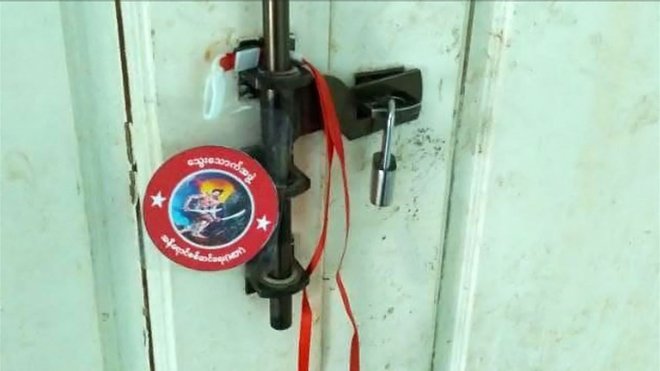 An undated photo of a badge with the insignia of the pro-junta Blood Comrades is attached to a home’s door in Mandalay, Myanmar. Credit: Citizen journalistThe Blood Comrades’ first known act was a April 21, 2021, post to the Telegram social media network that said it was targeting for assassination members of the NLD, PDF fighters and other opponents of military rule in Myanmar.
An undated photo of a badge with the insignia of the pro-junta Blood Comrades is attached to a home’s door in Mandalay, Myanmar. Credit: Citizen journalistThe Blood Comrades’ first known act was a April 21, 2021, post to the Telegram social media network that said it was targeting for assassination members of the NLD, PDF fighters and other opponents of military rule in Myanmar.The group has also threatened reporters and editors working for news outlets in Myanmar including The Irrawaddy, Mizzima, Democratic Voice of Burma (DVB), and The Irrawaddy Times, as well as their family members.
Photos obtained by RFA show leaflets or cards bearing the Blood Comrades’ logo left near the corpses of NLD members and supporters.
Operating with impunity
Bo Bo Oo, the NLD’s Sanchaung township deputy chairman, told RFA that the Blood Comrades are believed to have killed at least 58 of his party’s members.
He said that even if the junta is not directly responsible for forming the Blood Comrades, it likely approves of the group’s stated goals and has created an environment in which it can operate with impunity.
“These kinds of assassinations often occur in countries with authoritarian regimes,” he said. “When there are difficulties in directly confronting the resistance forces due to some legal stipulations, the junta raises and financially supports gangs or murderers and thugs to handle the opposition for it.”
Justice lawyer Kyee Myint expressed concern that members of groups like the Blood Comrades “believe that the only way they can get involved in politics is to kill people.”
But he said that the existence of such groups is unsurprising, given that they enjoy the tacit support of the junta.
“They kill openly in the middle of the city in broad daylight,” he said. “There is no reason why law enforcement agencies cannot track them down, but they have failed to take any action.”
Translated by Myo Min Aung. Edited by Joshua Lipes and Malcolm Foster.
|
本篇 |
不想錯過? 請追蹤FB專頁! |
| 喜歡這篇嗎?快分享吧! |
相關文章
AsianNewsCast










